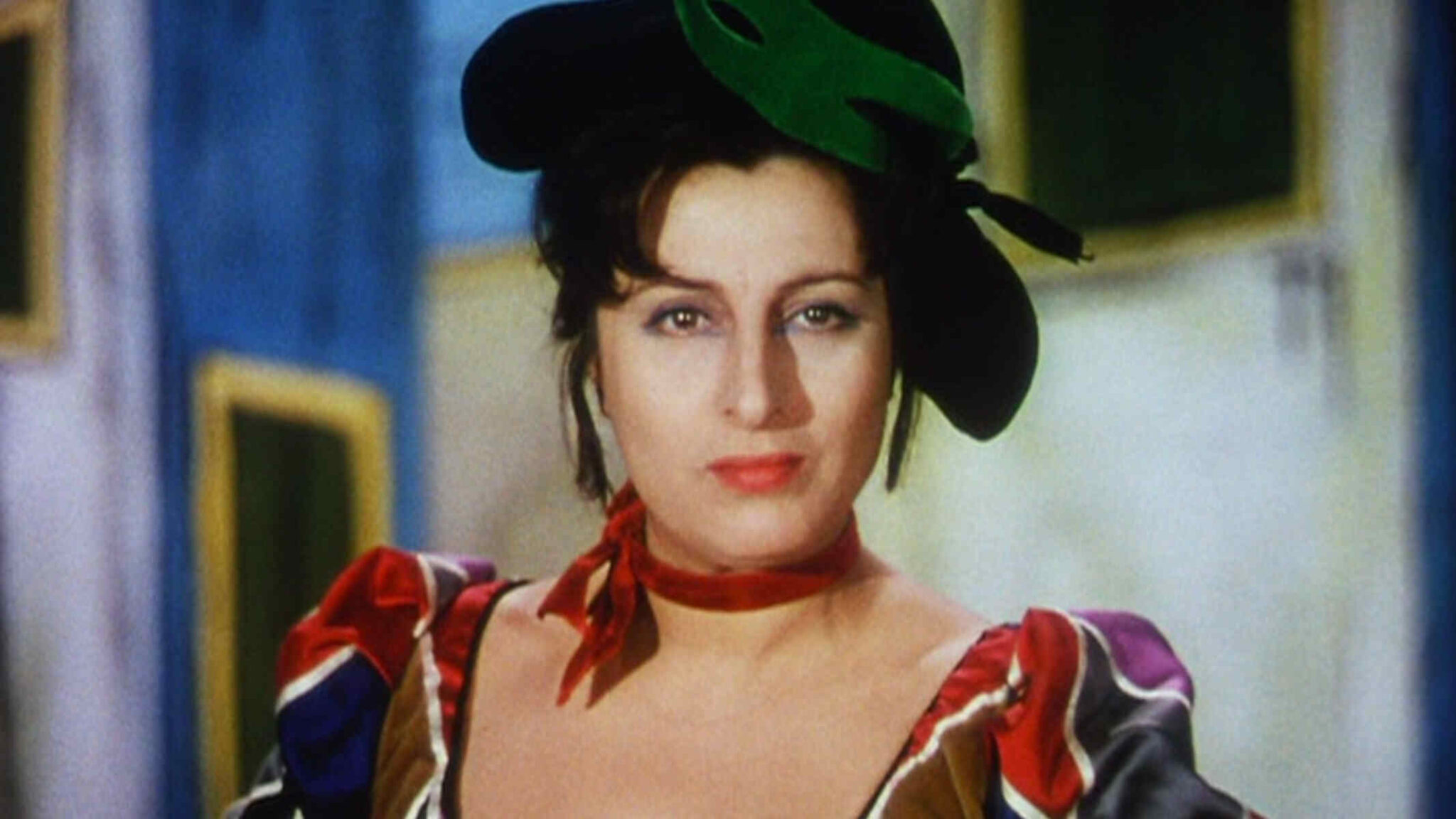Set on the edges of the known world in the 18th century, Jean Renoir’s The Golden Coach (1952) explores the colourful personalities of a Peruvian frontier town, after the arrival of a ship carrying a troupe of travelling actors and the eponymous golden coach. Renoir adapts the 1829 French play, Le Carrosse du Saint-Sacrement (trans. The Coach of the Blessed Sacrament), by Romantic writer and pioneer of the novella, Prosper Mérimée, marking the first ever Italian film to be shot in technicolour. And, what an incredible first! Renoir constructs a rich, textural viewing experience, without sacrificing the worldbuilding and depth, as he ponders questions of art and love. The 4K restoration of this classic rounds out the program of the Cinema Reborn Film Festival (May 1 – May 7), a fest dedicated to spotlighting the artistry of cinema, the value of film restoration and preservation, and the treasures that exist in the world’s film archives.
The film would simply not exist without Antonio Vivaldi. Renoir admits it himself, stating, “My principal collaborator on this film was the late Antonio Vivaldi. I wrote the script while listening to records of his music and his wit and sense of drama led me on to developments in the best traditions of Italian theatre.” The score, comprised entirely of Vivaldi’s compositions, does exactly that. It adds dimension to Renoir’s vision, making The Golden Coach feel like a love letter, not only to the storied tradition of Commedia dell’Arte, but also to Vivaldi’s sprawling oeuvre and enduring talent. One sees this reflected in the opening. The audience is forced to sit and consider Vivaldi’s Concerto No.1 in E Major, Spring, and its sublimity, first to an entirely black screen, and then to the credits. This score sets the tone for the film’s remainder; light yet replete with complexity, complementing the ode to Italy’s theatrical tradition.
This also rings true about Anna Magnani’s portrayal of the actress Camilla. Pauline Kael said it best when she proclaimed, “at his greatest, Jean Renoir expressed the beauty in our common humanity; that’s what Anna Magnani at her greatest expressed.” From the moment Camilla is introduced, you know exactly who she is. Magnani so thoroughly embodies her character, and imbibes her with humanity; it’s hard not to be captivated by her performance. The sheer magnitude of her persona fills the screen, as she is introduced, sitting upright on the back of a cart. Despite the provinciality surrounding, she still seems dignified and composed. When Felipe, played by Paul Campbell, asks Camilla how she likes the New World, Magnani responds, deadpan, “it will be nice when it is finished.” Magnani plays Camilla as a complete diva; that is what makes her performance so utterly enthralling. The audience gets to revel in the hijinx that ensues as she courts three men at once, an army man, a toreador, and a viceroy, each one more impressive than the last. What lends weight to her performance is Magnani’s scintillating chemistry with each one of her costars, as she so effectively plays off each of them, while they all desperately vie for her attention.
It also helps that Magnani is impeccably dressed throughout the film. Every single one of her costumes is stunning. Whether it be her stage costume – a floor-length gown covered in a gorgeous geometric print that would make Wassily Kandinsky jealous, paired with a simple red ribbon as a choker – or, the ensemble in which she questions the thin-line between her onstage persona and reality – a delicate pale blue lace top, a gorgeous black robe, and giant gold earrings that look like they were plucked straight out of last season’s Schiaparelli. This costume design mastery extends to the rest of the cast, from the intricate embroidery of the Viceroy’s incredible coats, to the simple clean lines of the Bishop and his entourage. Everybody on screen is immaculately dressed.
The Golden Coach holds an interesting place in Renoir’s body of work. It was his second film in colour and the first of his films to represent a departure from his more naturalistic style, yet it retains the director’s thematic depth, visual artistry, and humanist sensibilities. Despite being a critical and financial disappointment when it was first released, the remastering and restoration of it has allowed for it to be reassessed and acknowledged as occupying a unique and compelling place in Renoir’s diverse body of work, showcasing his versatility as a filmmaker and his ability to effectively explore the complexities of the human experience.
The Golden Coach (1952) is playing at the Cinema Reborn Film Festival at the Randwick Ritz in Sydney and Lido Cinemas in Melbourne. Click here to access the 2024 program, running from May 1-7.
Student prices for tickets to the 2024 Cinema Reborn Festival have been set at $15.00.





